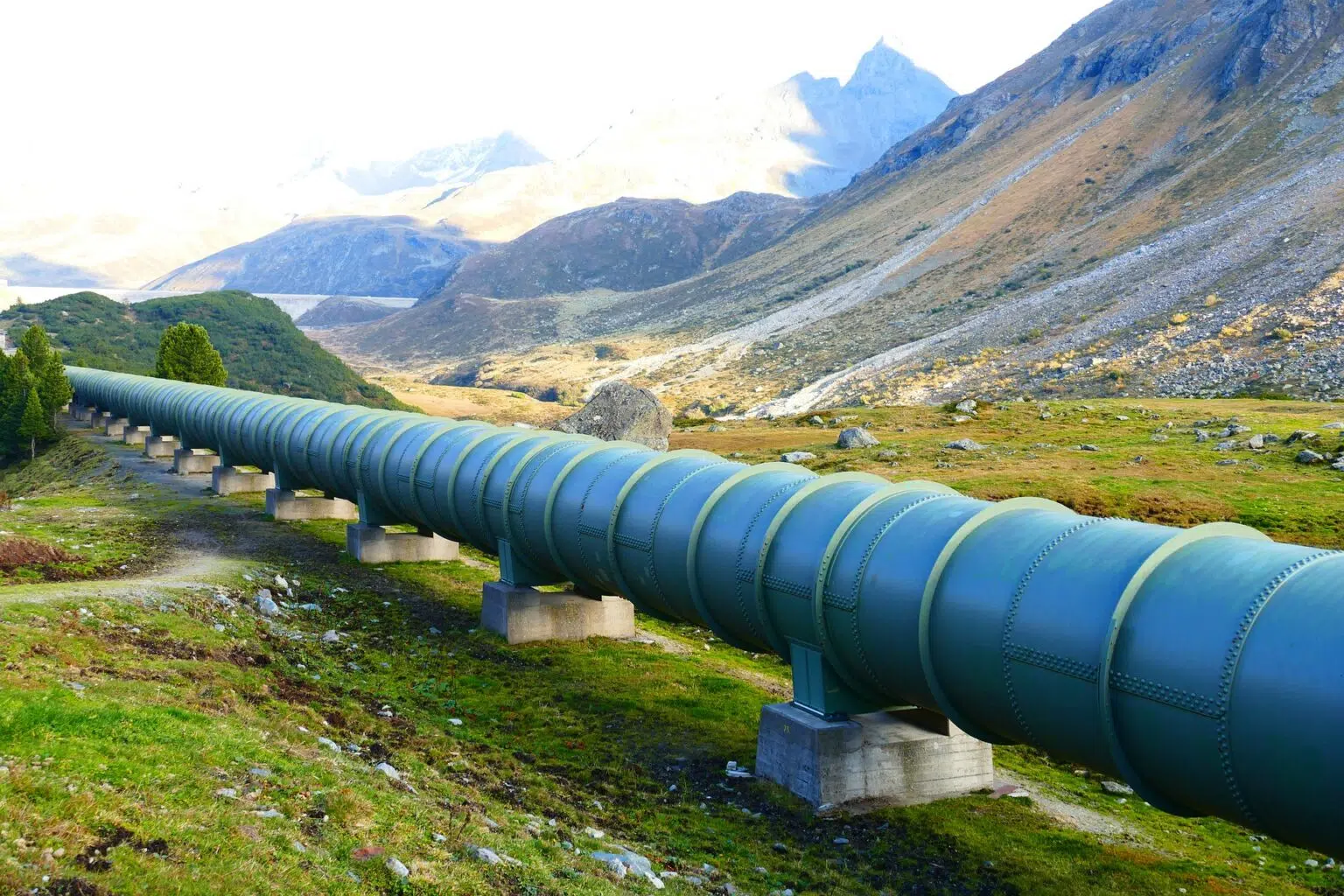Most EU Hydrogen Projects Risk Prolonging Use of Fossil Fuels
Original article republished from DeSmog according to their republishing guidelines.
Data shared with DeSmog shows that only one in ten proposals have committed to using climate-friendly green hydrogen.

The European Commission is facing calls to assess the climate impact of scores of proposed hydrogen projects after data revealed that 90 percent of them could be used to prolong the use of planet-warming natural gas.
Companies operating Europe’s existing natural gas infrastructure are seeking to preserve the value of their assets by converting them to carry clean-burning hydrogen to power homes and industry in line with legally-binding climate targets.
But the data compiled by Brussels-based research and advocacy group Food & Water Action Europe, and shared with DeSmog, shows that 57 percent of 147 hydrogen projects under consideration by the European Commission are designed to also carry natural gas, or “blue” hydrogen made from the fossil fuel. A further 33 percent of projects have failed to rule out carrying fossil-based hydrogen, or have no credible plans to source climate-friendly “green” hydrogen.
Only 10 percent of the projects explicitly commit to using green hydrogen – which is produced from water using a process powered by wind or solar energy, and does not produce the carbon dioxide (CO2) emissions associated with other forms of the energy carrier.
Many of the hydrogen schemes also fail to adequately consider how they would align with climate targets; the risk of hydrogen leaks; whether there will be sufficient hydrogen demand; where hydrogen will be sourced, or the economics of hydrogen infrastructure, campaigners say.
In response to the findings, Marie Toussaint, a French Green Party politician, urged policymakers to assess whether each project aligned with a European Union target to slash emissions by more than half by the end of this decade, compared to 1990 levels.
“We call on the Commission to stand firm and prevent European public money from financing the ‘hydrogen hype’ via disproportionate climate-killing projects pushed by certain member states and lobbies,” Toussaint, who is a member of the European Parliament, told DeSmog.
“Climate change is accelerating and droughts and floods are hitting our continent,” she said. “The roadmap is clear, and repeated many times by scientists: We must no longer, the European Union must no longer, invest the slightest euro in fossil fuels.”
The European Commission did not respond to a request for comment.
The data was derived from a review of hydrogen projects applying for classification as European Commission “Projects of Common or Mutual Interest” (PCIs or PMIs) — key projects to increase energy infrastructure connectivity, while meeting climate targets, that may be eligible for public funds. Successful projects are to be announced in November.
Hydrogen was included in the PCI/PMI category for the first time this year – a sign of the increasingly strong legislative and policy support hydrogen projects enjoy within Europe.
European gas companies proposed more than 90 percent of the hydrogen projects, ranging from pipeline networks and energy ‘corridors’, to salt caverns capable of storing liquefied hydrogen.
The proposals included a storage facility in Slovakia that would store 95 percent natural gas and five percent hydrogen, and H2 Med, a pipeline project connecting Spain, Portugal, France and Germany that has not ruled out transporting hydrogen made using natural gas.
Green Hydrogen
The EU has set ambitious goals to develop green hydrogen which is seen as a possible solution for decarbonising so called hard-to-abate industries, such as steel. However, the data showed that many of the proposals contained no mention of green hydrogen at all.
Most of the proposed hydrogen projects would either allow for continued use of natural gas within pipelines; carry a blend of natural gas and hydrogen, or rely heavily on blue hydrogen, made from natural gas.
The fossil fuel industry says blue hydrogen can be a climate solution since the CO2 generated during the production process is sequestered underground using a process known as carbon capture and storage. Critics dismiss that claim, arguing that the process prolongs demand for fossil gas; is inefficient; and leaks large amounts of CO2.
More than a hundred of the project submissions were made by members of the Brussels-based European Network of Transmission System Operators for Gas, a trade association representing gas networks across Europe. “ENTSOG sees green hydrogen to be the dominant source of hydrogen for the future European energy infrastructure,” a spokesperson told DeSmog.
A further 37 projects were submitted by other fossil fuel companies, including Germany utility Uniper, Norwegian oil and gas company Equinor, and oil majors Shell and BP.
More than a hundred of the projects would repurpose existing fossil fuel infrastructure.
Frida Kieninger of Food & Water Action Europe, who led the analysis, said the fossil fuel industry enjoyed a priority seat at the table in deciding on key infrastructure.
“Unsurprisingly, they have little to no concern about these giant infrastructure projects transporting hydrogen made from dirty fossil fuels,” Kieninger told DeSmog.
“It’s not hard to imagine what this risks leading to: billions spent on hydrogen pipes despite high uncertainties around future demand and supply – and a damaging impact on the climate.”
Touissant, of the Green Party, says the criteria for approving the projects should exclude hydrogen produced from natural gas and require projects to run on green hydrogen by 2029.
“If a project does not respect the imposed conditions…the project leaders must be sanctioned and ordered to reimburse the public funds received,” she said.
“Greenwashing must be fought, especially when it comes to using public money.”
Original article republished from DeSmog according to their republishing guidelines.